Surprise, Surprise
Travel, at its best, is a series of surprises. The little ones—the perfect cup of coffee in some hole-in-the-wall café, the back alley neighborhood that somehow dodged the tourist mobs. Then there are the big ones—the moments when you step into an entirely different world, completely by accident. That’s how I found myself in Anjar, a full-fledged Armenian village… in Lebanon. Yeah, you heard me right—Armenian, but not in Armenia. This is the kind of discovery that makes the whole “mission to see every country in the world” worth it.
I hadn’t planned on stopping here. I didn’t even know Anjar existed, other than the fact that it was one of the closest towns in Lebanon to the Syrian border. And that border? That was my white whale. I’d been holed up in Beirut for days, waiting—hoping—praying for my Syrian visa to come through. It was late. My ten-day trip was slipping away, and with it, maybe my only shot at getting into Syria. I’d been trying for years. This was it. I was running out of time, and every second wasted felt like a slow, torturous death.
>>> RELATED: Hey Bey-Bey – My First Trip to Lebanon <<<
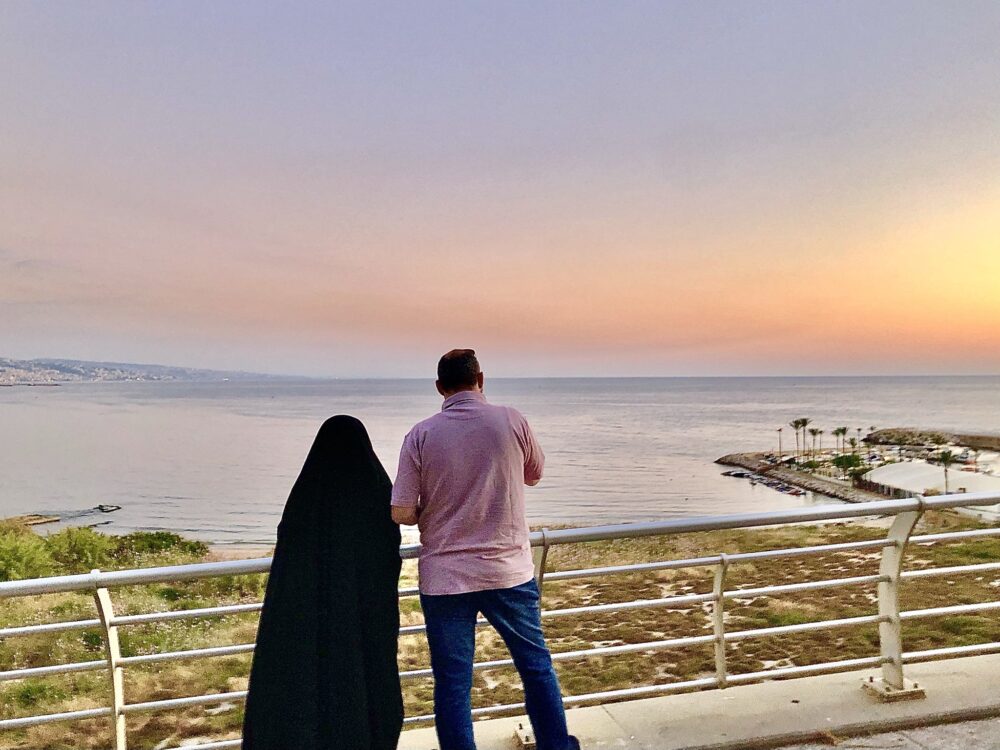
Border Town
So, Anjar. It was a strategic move—stay close to the border, be ready to move the second my visa got approved. But what I didn’t expect was to actually like the place. I mean, really like it. I had no idea this was an Armenian village, settled in 1939 by survivors of the Armenian Genocide. That alone made it worth the detour.
I spent that first day walking the quiet streets, soaking it all in. A handful of tiny parks and monuments, a big church, a couple of hotels, a few restaurants. The ruins were the main draw for the occasional tourist. But what really stuck with me? The people. Almost everyone I met was Armenian. Street signs bore names ending in “-ian,” honoring local heroes. It was a fascinating little pocket of history—just enough to distract me, at least temporarily, from the gnawing anxiety that my damn visa still hadn’t arrived.
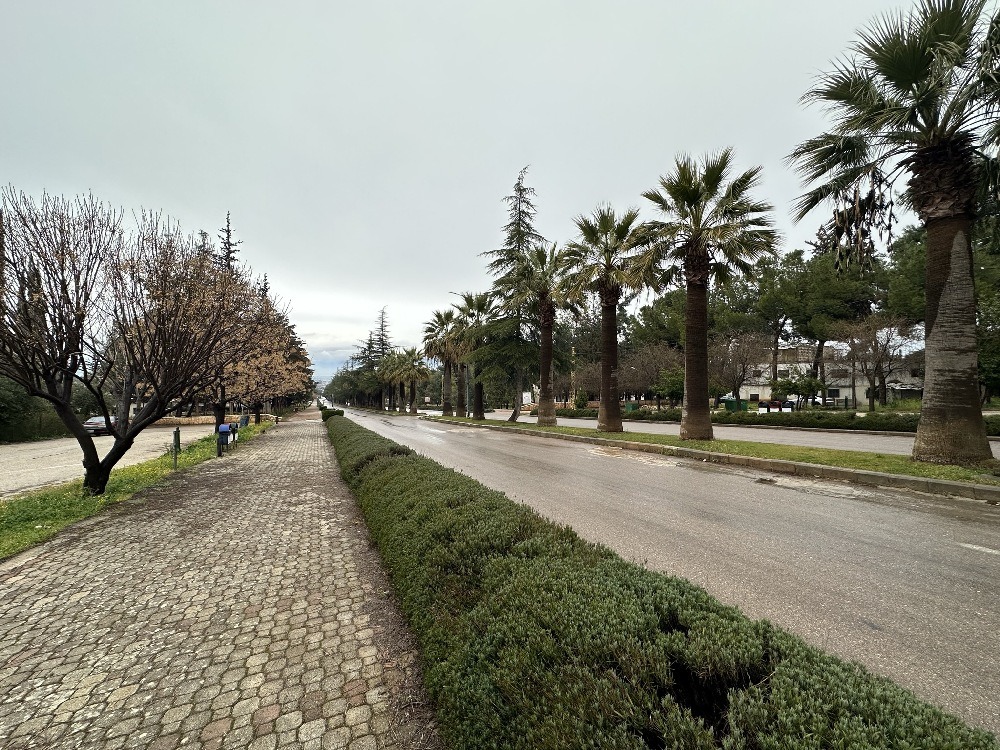
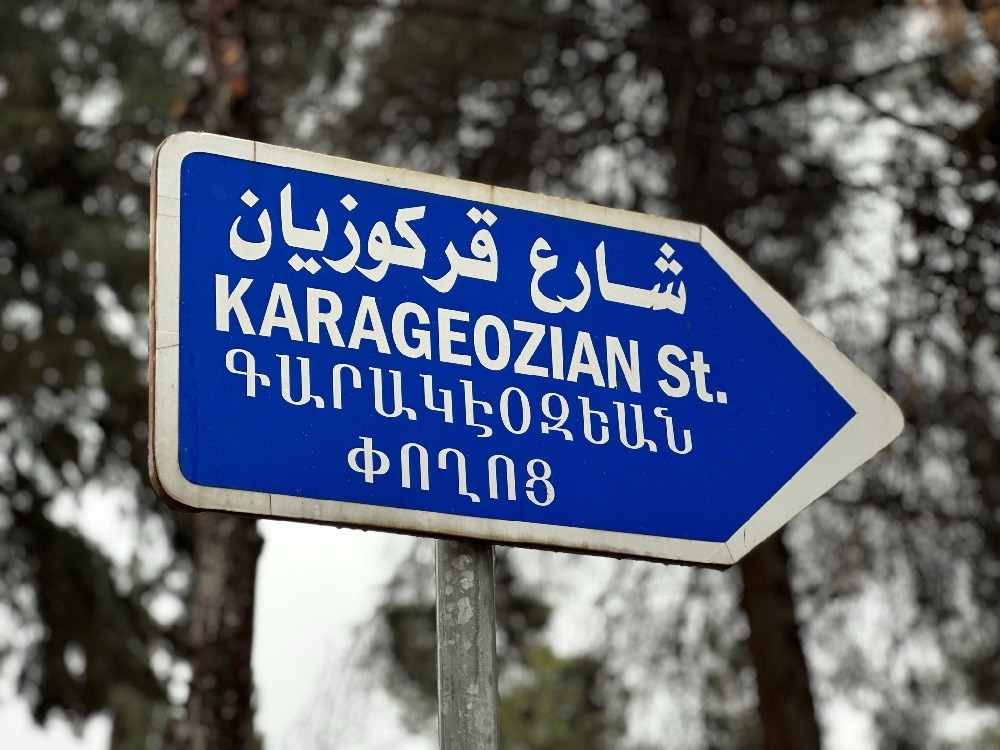
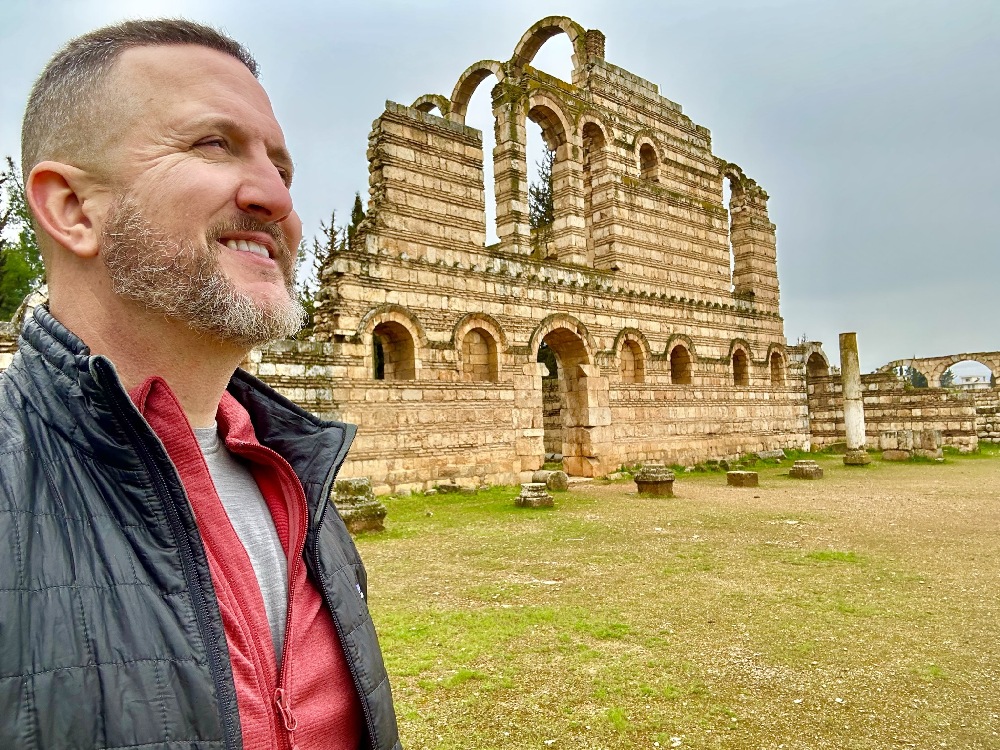
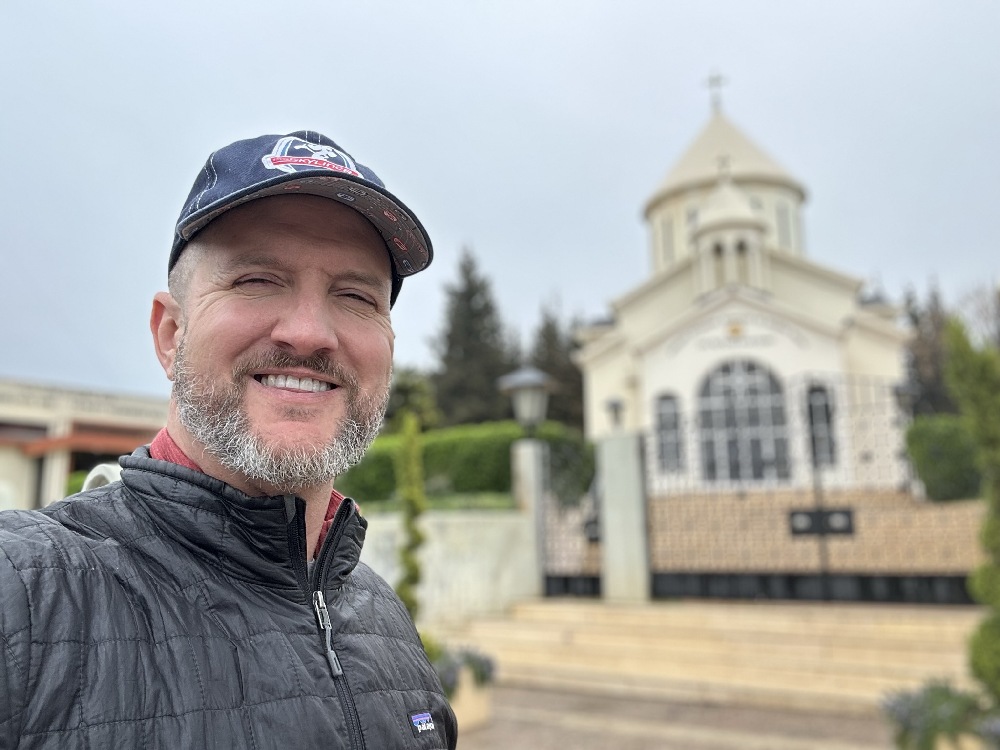
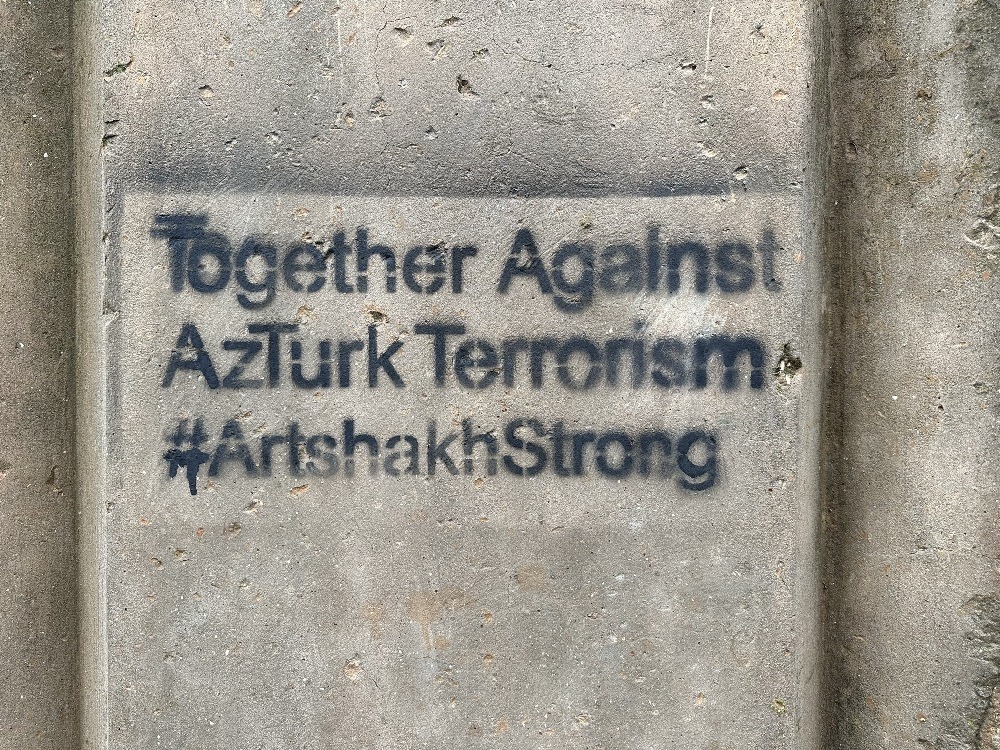
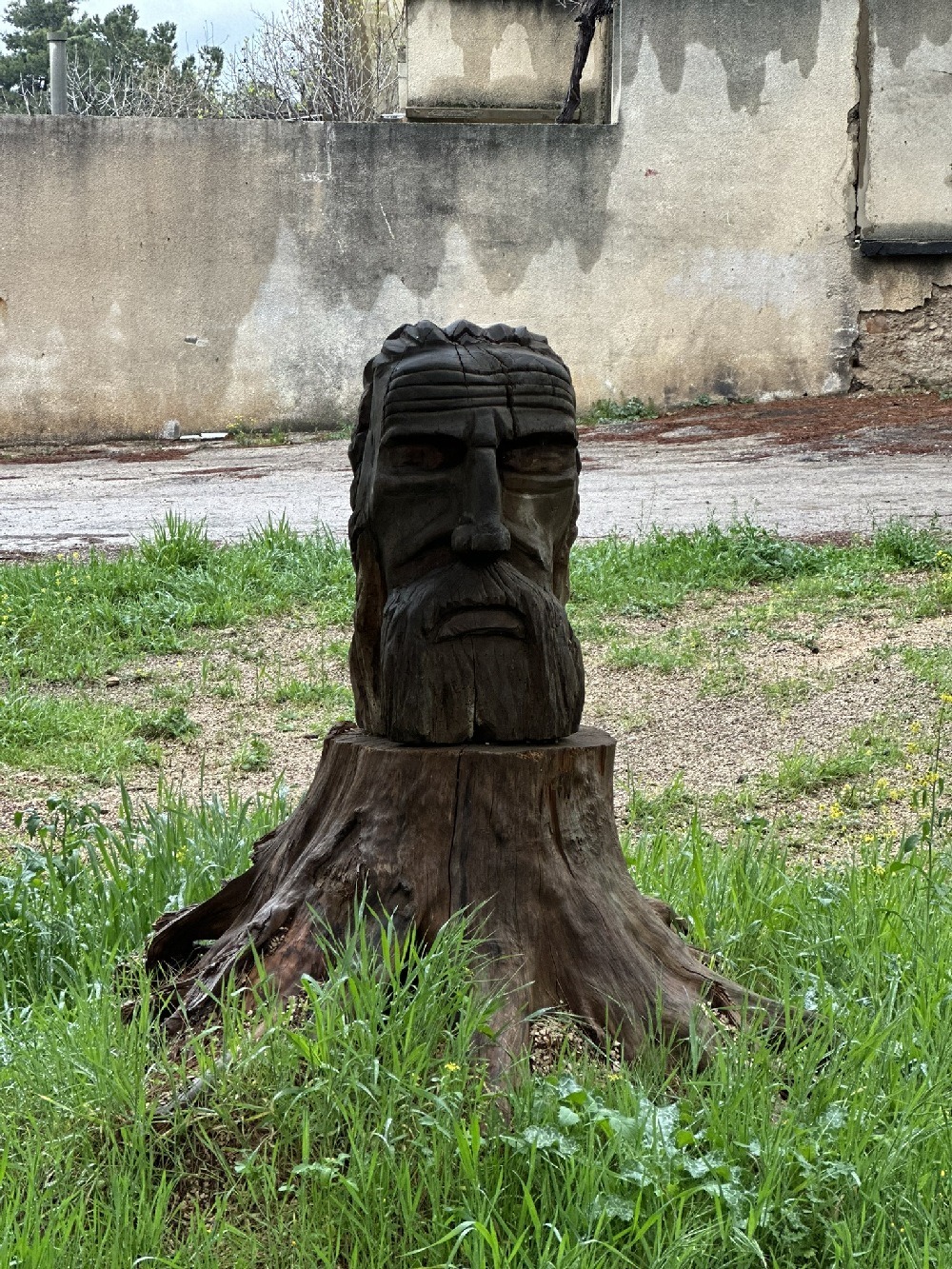
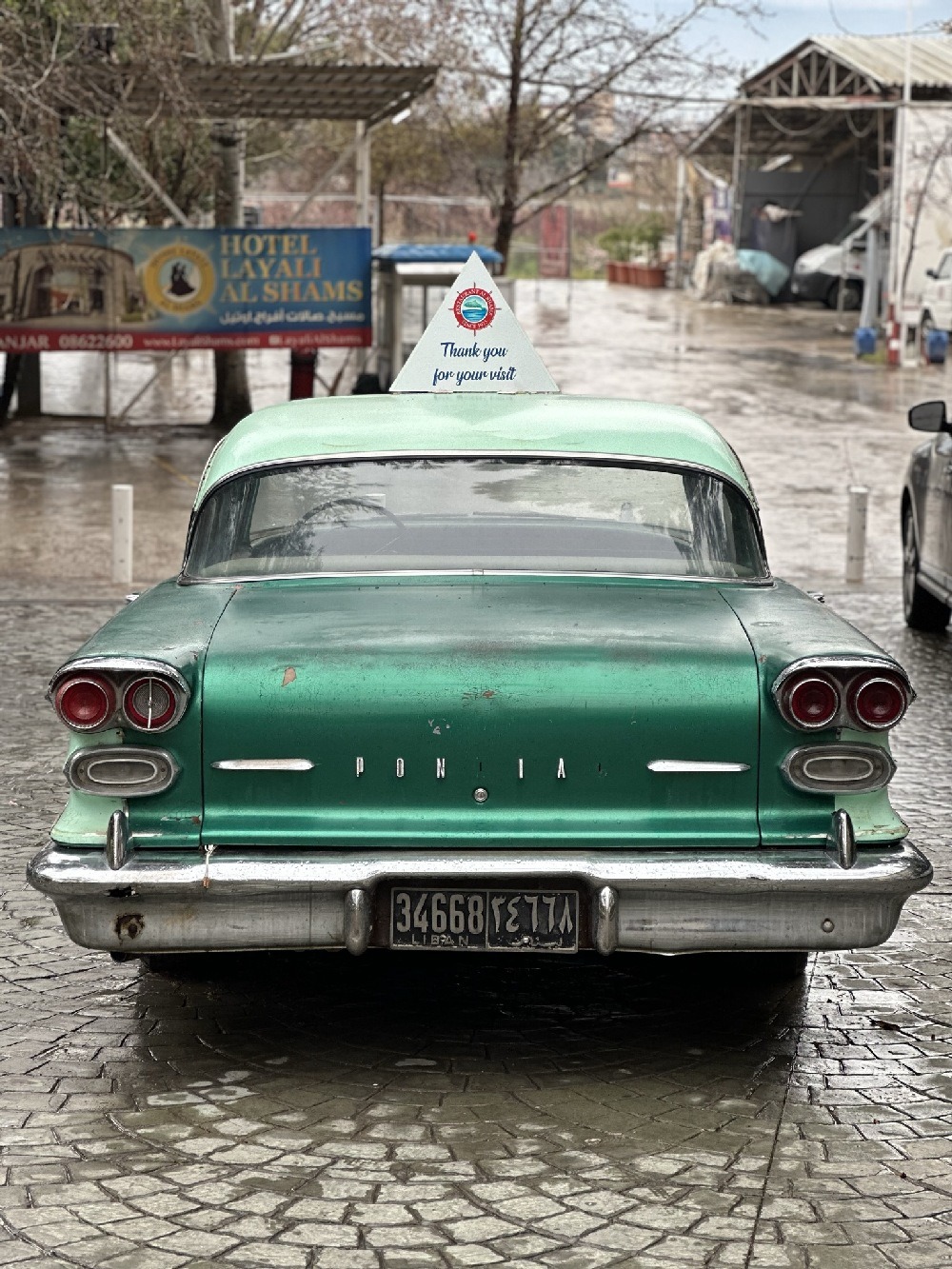
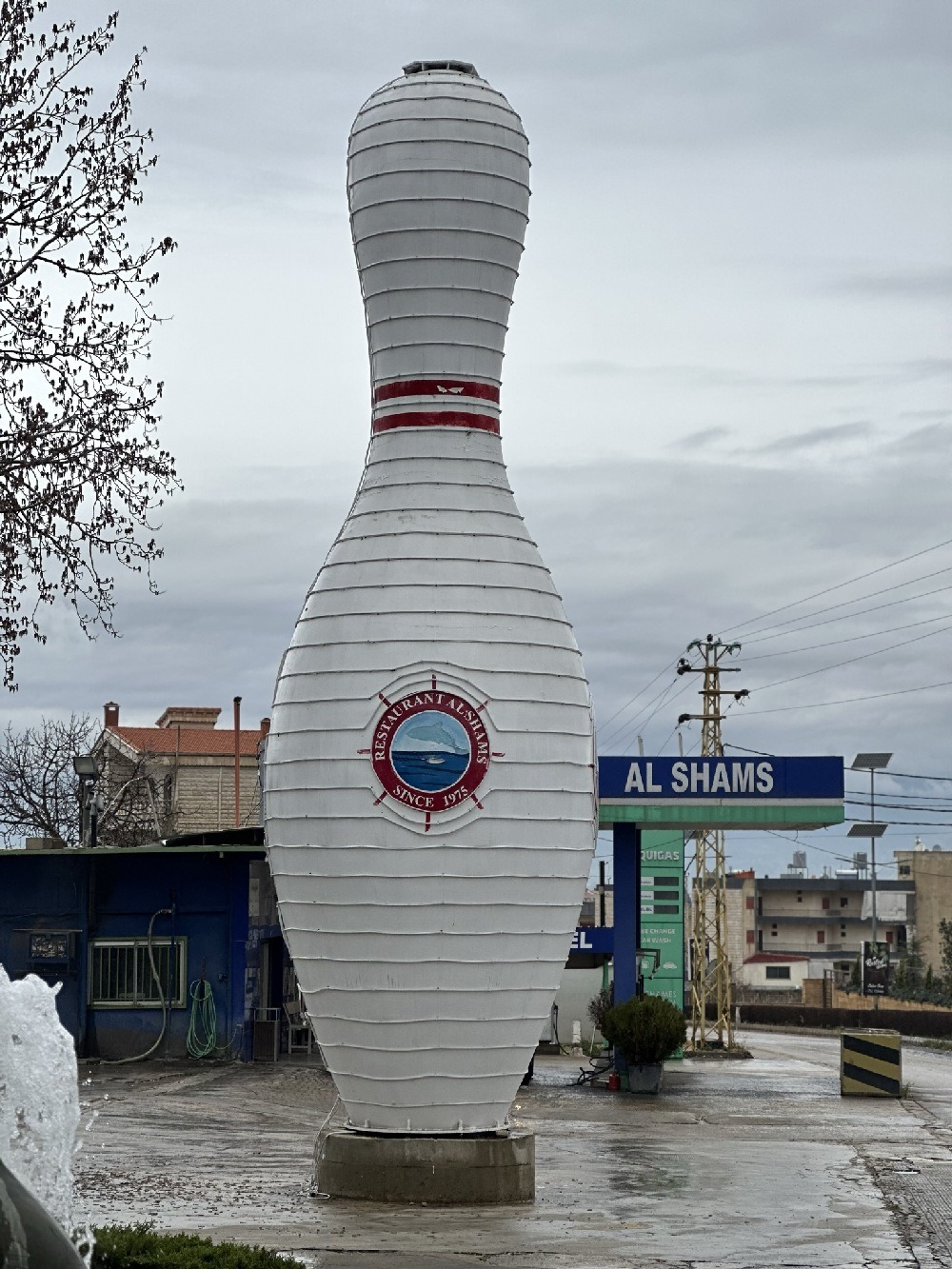
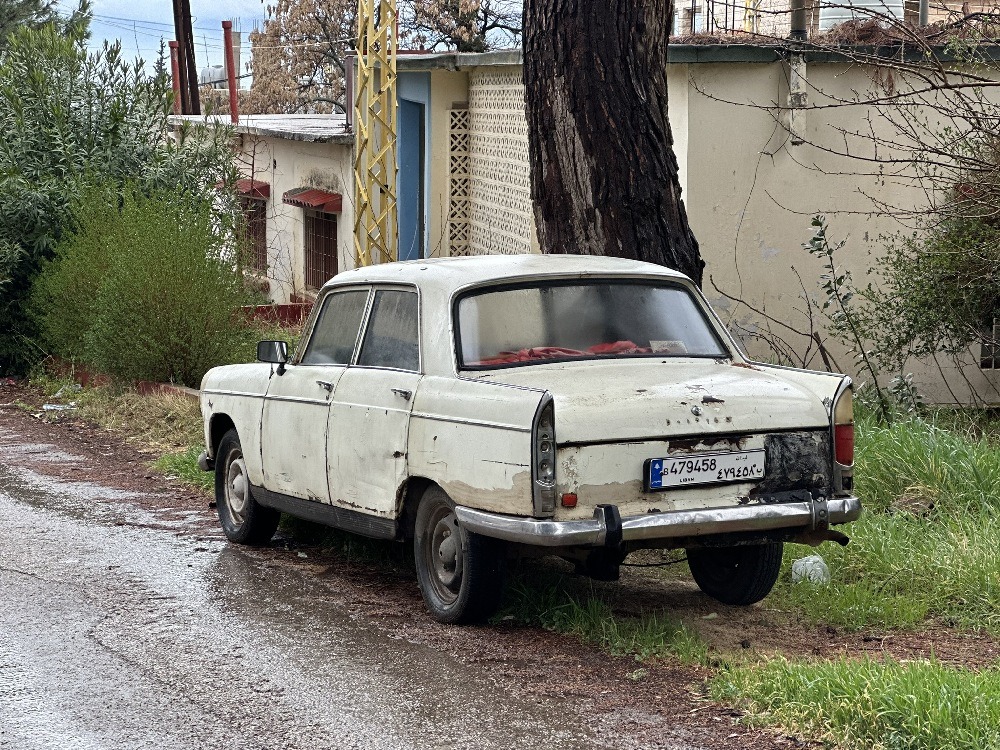
Accommodations
Now’s the part where I shamelessly brag about my accommodations. The Hotel Layali Al Shams—a damn fine place. Elegant rooms, ridiculously comfortable beds, English-language TV (a rare and welcome luxury). The pool looked incredible, though it wasn’t quite swimming weather. But the real highlight? The people. Specifically, Gassig and Vart (which, in Armenian, mean cinnamon and rose—how perfect is that?)
And the food—because, of course, the food. Breakfast? A massive spread, the kind that fuels an entire day of wandering on foot. Dinner? Manti—perfect little parcels of dough, so expertly crafted they felt less like food and more like architecture. Crispy, tender, swimming in just the right balance of tangy yogurt and spiced meat. Every bite? A celebration.
>>> RELATED: Into the Unknown: My Journey Through Artsakh <<<
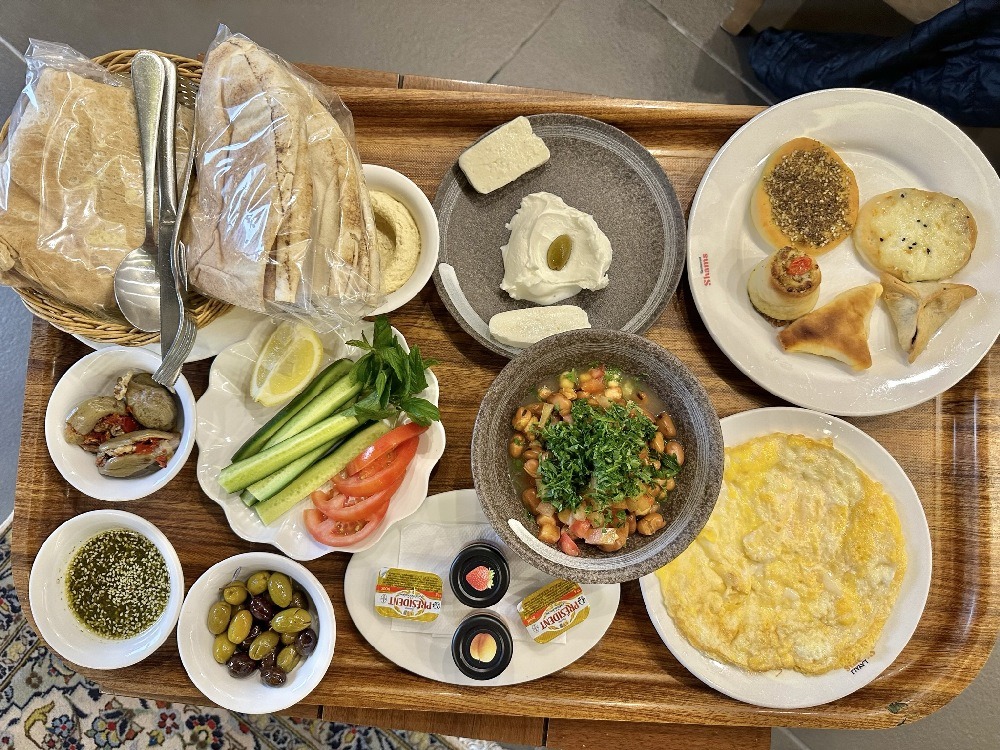
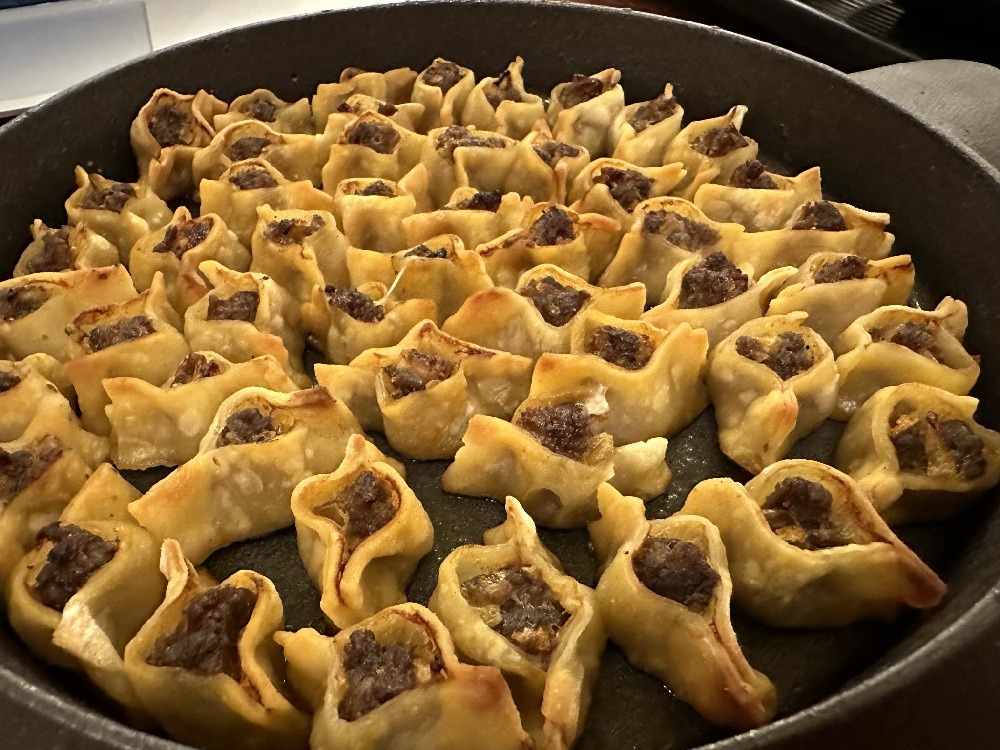
Diplomatic Treatment
By day three, I wasn’t just another guest—I was getting the VIP treatment. Vart took it upon herself to personally show me around town. And then, the real kicker—she started calling up her friends, asking them to open their shops and galleries just for me. Let me repeat that: they opened entire museums just because I was in town. The Mousa Ler Anjar Ethnographic Museum and the Anjar Art Gallery—both unlocked and brought to life by their directors, solely for my visit. I’m not gonna lie—I felt like royalty.
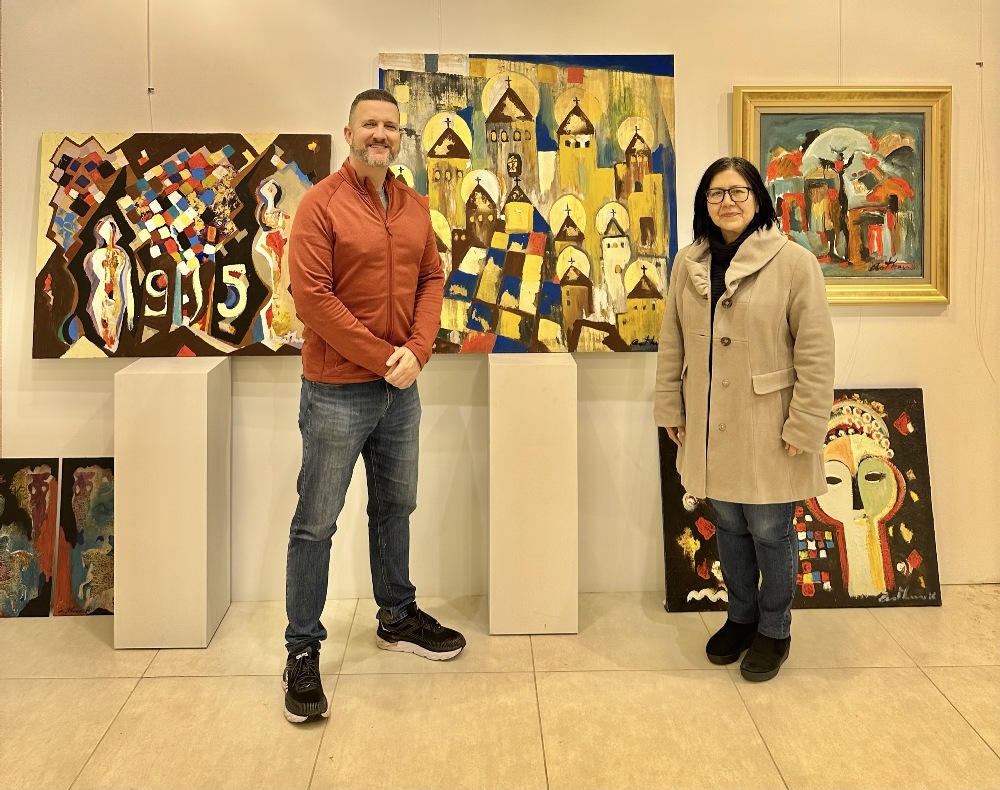
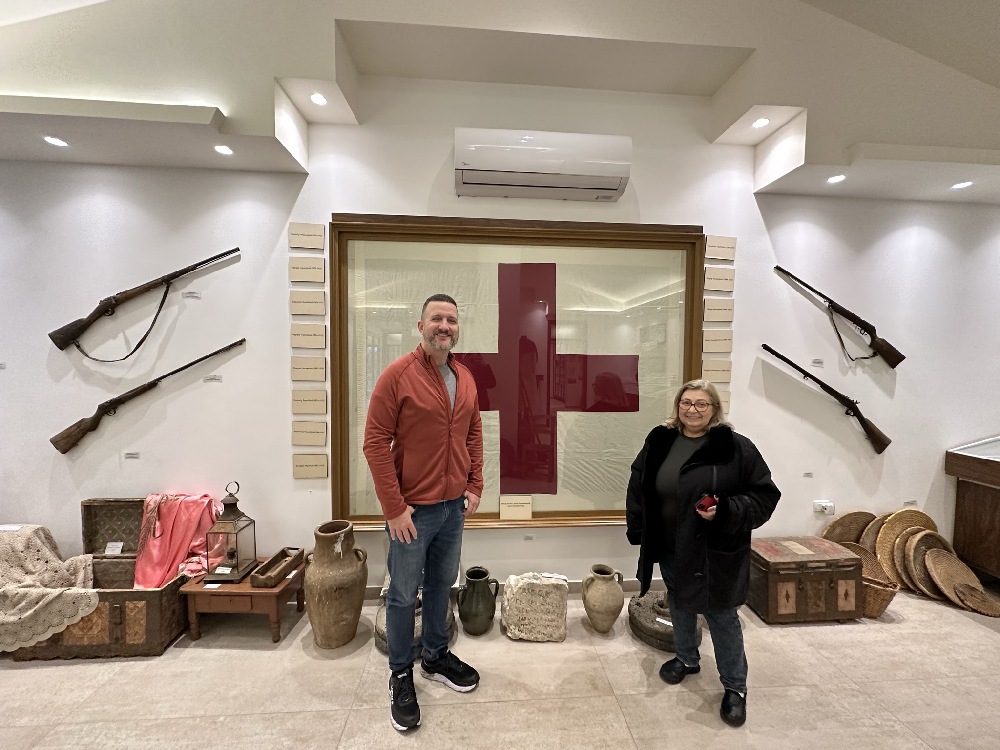
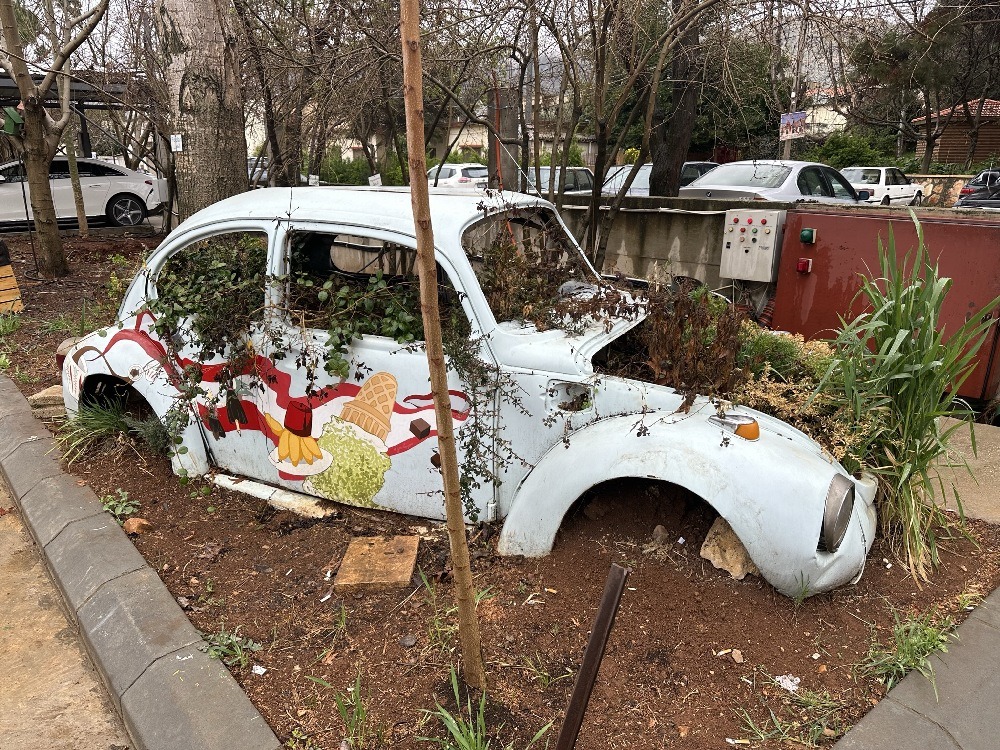
Adios, Anjar
The people of Anjar made me feel at home, in a way I never expected. Their warmth, their hospitality—it was almost enough to dull the sharp, gnawing disappointment of my still-MIA Syrian visa. Almost. Anjar wasn’t supposed to be part of the plan, but man, was I lucky to have landed here.
As if that final afternoon with Vart—wandering Anjar, meeting locals, feeling like some kind of honorary Armenian—wasn’t already a win, I got back to the hotel to find a message waiting for me. My visa was approved.
Holy. crap.
Tomorrow morning, I’d meet Fadi, the company’s owner, at the border. I was in. Sure, it only meant about 30 hours in Syria, but at this point, I’d take it. I had already started making peace with the idea that I might have to go home without ever setting foot in Damascus. That thought had been gutting me for days.
But I was going.
I damn near cried.
>>> RELATED: Desperately Seeking Syria <<<
This entry was posted in Asia, Middle East


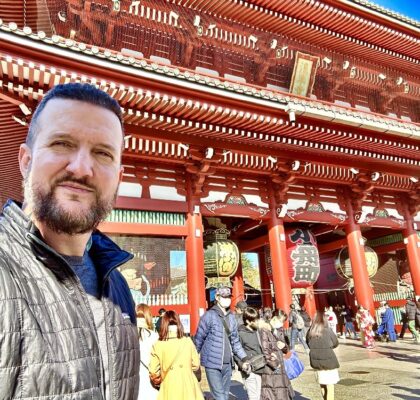
Beautiful article, thank you !
Our family, on mother’s side, are all Musa Ler survivors. My grandfather hid little children in tbe mountain from the brutality of the murderous Turkish military. They were cutting people in half with swords, cutting babies out of stomachs, marchingbto death in desserts, raping and shooting them. Unbelievable horror and trauma. Yet, they worked hard and not only survived globally, they built churches, communities and cities! My grandfather faced this shocking horror as a young teen and without parents. He had to take care of his younger sister. The surviving relatives had already gotten to America. Patterson NJ mostly.
He fought and he and other boys rescued many childrenand foughtoff the Turkishmilitary. They were finally rescued by the French and brought to Port Said.. He was later interviewed for the book ‘The Forty Days Of Musa Dagh’ while already in Patterson and NYC. The saddest part is its now all happening again to the Armenians by Turkish and AZ with Netanyahu helping. Killing brutally again on their own ancient lands, to Palestinians and now again to Iranians. The oldest cultures on Earth are being intentionally destroyed by corrupted evil ‘politicians ‘ profiteering on death once again. People need to travel and learn from each other, and to unite and help protect one another and God’s miracle Earth.
Most of our relatives came to the USA and Canada. But some went to Anjar and raised families. Resilient people! They’ve mostly all had to immigrate to Canada and USA
during the war in Lebanon a few decades ago.
I’m sure they’d really love to see your wonderful article.
Thank you so much for your incredibly powerful and heartfelt comment. I’m deeply moved by your family’s story—the resilience, courage, and determination to survive the unimaginable and still build community, faith, and a future.
The history of Musa Dagh is one of the most poignant and heroic in the Armenian narrative, and your grandfather’s role—protecting children, resisting brutality, and helping save lives—deserves to be remembered and honored. It’s not just history, it’s a legacy of defiance and humanity in the face of evil.
It’s tragic and infuriating that similar horrors are repeating themselves today. The cycles of violence against Armenians, Palestinians, Iranians—and so many ancient peoples—remind us how easily history is allowed to echo when we fail to listen. Your words underscore the importance of bearing witness, telling these stories, and traveling not just to see, but to understand.
Anjar is a testament to the spirit of survival. It carries the memories of exile and hope in its stones and streets. I feel honored that my article could, in some small way, connect to your family’s journey and legacy. If you choose to share it with them, it would be a privilege.
Thank you again—for sharing your truth, and for reminding us why we must never forget, and never stop learning from one another.